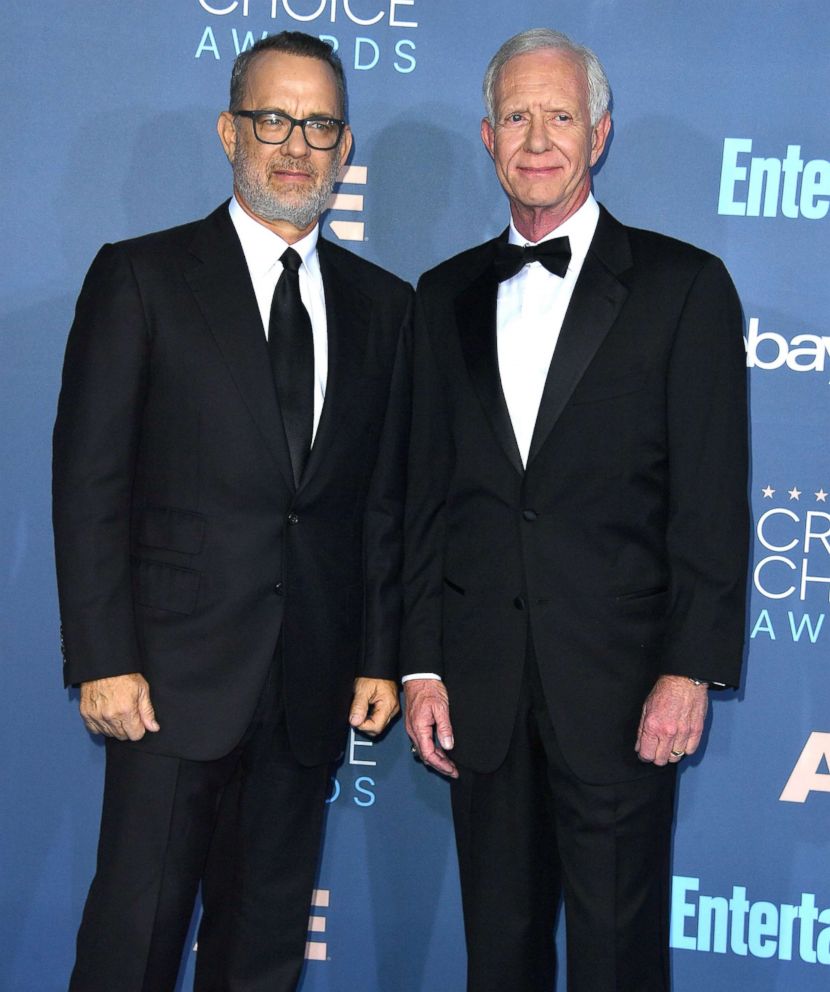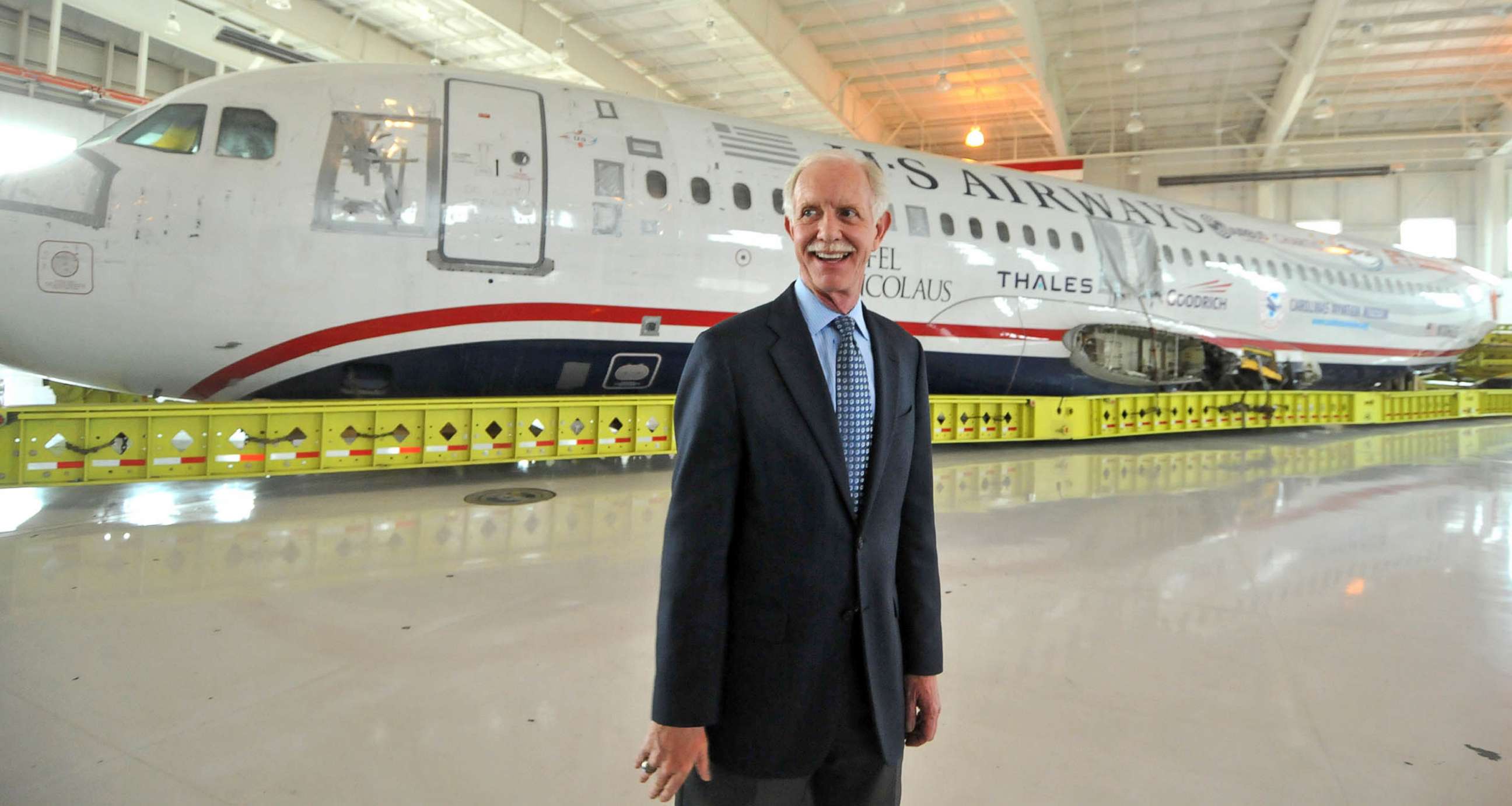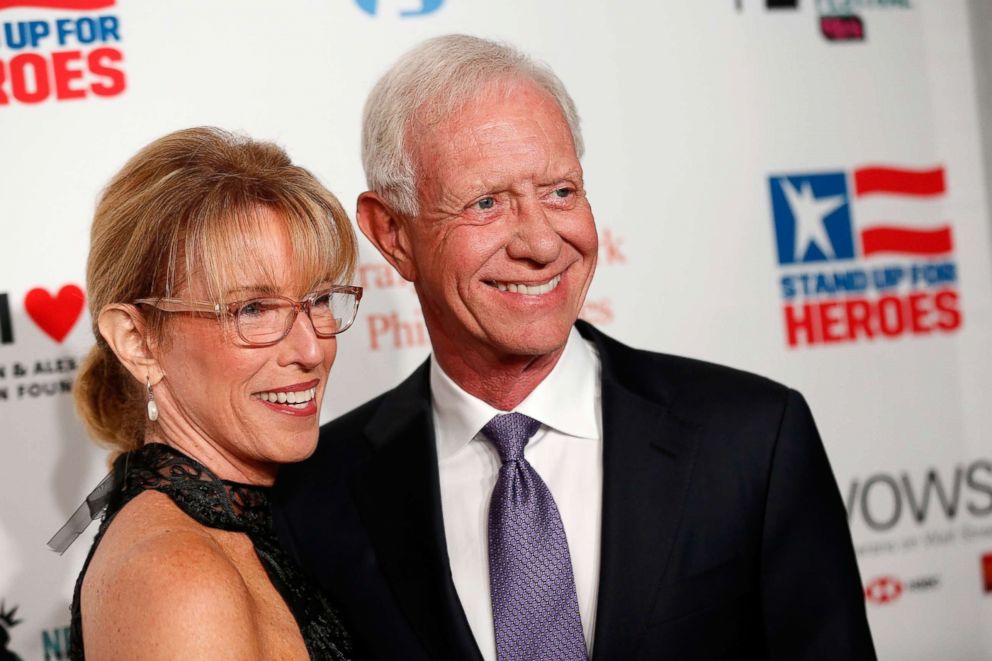10 questions for Capt. 'Sully' Sullenberger on 10th anniversary of emergency landing on Hudson River
A decade after successfully landing a crippled US Airways jet on an icy slice of the Hudson River straddling New York and New Jersey, Capt. Chesley Sullenberger tells ABC News of the mementos he keeps from his most famous flight, what it was like to be portrayed on the silver screen by actor Tom Hanks and if he ever plans to go into politics.
Watch "Good Morning America" Tuesday, Jan. 15, at 7 a.m. ET for Amy Robach’s exclusive interview with Capt. Chesley "Sully" Sullenberger.
On the 10th anniversary of what former New York Gov. David Paterson dubbed the "Miracle on the Hudson," the pilot America came to know by his nickname "Sully" answers 10 questions:
ABC News: Is there any part of the story that the world hasn't yet heard?
Sullenberger: Many people know that I retired from US Airways just over a year after the famous flight, after over 30 years of airline flying, but many do not know that I did not retire from working; I just changed professions, not just as a speaker, author, and safety expert, but also as an advocate for the safety of the traveling public, and for safety in every industry. When I realized that the sudden notoriety had given me a greater voice, I felt an intense obligation to use this bully pulpit for good, including now as a defender of our democracy.
ABC News: What was it like to be portrayed by Tom Hanks in the movie "Sully: Miracle on the Hudson"? Did you take him on a flight?
Sullenberger: It doesn't get any better than to have Tom Hanks portray you in a movie. I think he was everyone's first choice. And while I did not take him flying, I did get Tom and Aaron Eckhart, who played our first officer, Jeff Skiles, in an airline simulator to help them understand how airline pilots work closely together as a crew, how even pilots who have never met before (as was the case for Jeff and me) can quickly form an expert team, and the critically important team skills necessary to create the kind of collegial atmosphere we must have to be able to suddenly face a crisis we have never trained for, solve a problem we've never seen before, and get it right the first time, in 208 seconds.

ABC News: Now that you are retired, do you fly privately for pleasure and have you had any near misses since the Hudson River landing?
Sullenberger: Flying is still a lifelong passion for me, and I fly privately for business and personal travel over shorter distances, as well as traveling a lot as a passenger on all the major airlines. No close calls.
ABC News: What is the thing you remember most about Jan. 15, 2009, and what was your last thought before you hit the water?
Sullenberger: Right before the landing, I knew that without engine thrust, and using gravity to provide the forward motion of the airplane, it was going to be a hard landing. My thought right before we touched down was, "This is going to be bad." But when we stopped in the water and it was obvious that the airplane was intact, stable, and floating, Jeff and I turned to each other and simultaneously said, "That wasn't as bad as I thought!"

ABC News: Did you ever think you were going to die, or had doubt that you and Skiles could pull it off?
Sullenberger: I never thought I was going to die that day. Even though we had never trained for this scenario. In our flight simulators, it was not possible to practice a water landing; the only training we got for a water landing was a theoretical classroom discussion and reading a few paragraphs in a manual. I was confident we could find a way to solve all the many problems we faced.
ABC News: Do you keep anything with you from that day?
Sullenberger: I kept a few pieces of the flight paperwork: the weather reports and forecasts, the fuel slip specifying the amount of fuel added for the flight, and my trip sheet, a small piece of paper with the schedule of flights on this four-day trip.
ABC News: Who do you thank for getting you through that moment?
Sullenberger: My wife Lorrie has been the best partner I could have had to get through not only the flight and the shocking intensity of the media and public attention in the aftermath, but every part of my family and me learning how to adjust and grow to be public figures on the world stage. She has skills that I lack, and has been an indispensable part of successfully handling every challenge, managing every opportunity, and keeping it all in perspective.

ABC News: This may be hard to imagine, but do you have any regrets about your heroic water landing?
Sullenberger: In the immediate aftermath, of course, there was a lot of 'what-iffing' and 'second-guessing', and early on I said that we were just doing our jobs. But with the passage of time, I have gained a greater appreciation for what everyone did that day. We did our jobs very well, perhaps better than might have been expected under such dire circumstances.
ABC News: Do you ever have flashbacks to that very moment? If so, how often, and what do you think about?
Sullenberger: Not since the first few nights when I couldn't sleep. Since then I have gotten nearly daily reminders of the flight when people have recognized me and thanked me and my crew for what we and all the rescuers and first responders were able to accomplish. On that day, a group of strangers rose to the occasion and made it their mission to save every life.
ABC News: In the Washington Post opinion piece, you spoke a lot of heroism and leadership. Who in history do you admire most and do you see yourself running for political office?
Sullenberger: Throughout my life, I have continued to learn about and practice leadership skills and appreciated how important they are in every aspect of life, and I have admired people who have served a cause greater than themselves and who have exhibited moral courage, often at great cost. Just a few examples are retired U.S. Army General Eric Shinseki, who testified forthrightly about the number of soldiers that probably would be required to stabilize Iraq after the invasion, a number much larger than Defense Secretary Rumsfeld was planning; and Dr. Mona Hanna-Attisha, the pediatrician whose research revealed the Flint water crisis. In a just world, she would receive the Presidential Medal of Freedom. I still run regularly, but I'm not running for office. Instead, I am using my voice to speak about things I have cared about my whole life. I am reminding everyone that when we remember our common humanity and work together, there is little we cannot accomplish.





